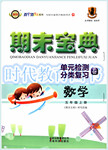题目内容
12.I'd rather _______ at home than _______ out in such bad weather.( )| A. | staying; going | B. | staying; go | C. | stay; going | D. | stay; go |
分析 我宁愿待在家也不愿在这样糟糕的天气外出.
解答 答案:D
本题考查固定短语"would rather do than do"意为"宁愿做…也不愿做…",故选两个动词原形.
点评 本题考查固定短语.难度不大,考生在平时熟记这些短语即可.

练习册系列答案
 一课一练课时达标系列答案
一课一练课时达标系列答案 期末宝典单元检测分类复习卷系列答案
期末宝典单元检测分类复习卷系列答案
相关题目
4.I had gone today to complete some unfinished business.It was a hot,sunny afternoon.I(211)Bthe ear mad was walking towards my destination,(22)Dfrom a distance I saw all elderly man walking towards me in the opposite(23)A.
As we came close,I saw that he was walking(24)C,in measured steps and there was a look of(25)Don his face.He Was not feeling comfortable,which I could clearly see.I(26)A at him and then moved on,wanting to go quickly and complete my unfinished work.
I soon reached my destination,completed my work and was(27)Cto where the Car was parked.when again from a distance I saw the(28)Bman sitting on the road.I quickly walked(29)Cto where he was sitting.
I(30)Adown and saw that he was tired and exhausted.I was concerned and asked him where he stayed as the(31)Dwas to drop him to his house in my car.He gave me the name of the place where he stayed.(32)C,the name did not seem familiar and I did not want to just keep(33)Bfor the place,seeing the condition of my elderly friend.I quickly saw that(34)Aon the opposite side of the road were a few taxis.
My(35)Dhad been that the taxi drivers were the best(36)B to unknown places.I quickly(37)Cone of the taxis and told the driver to drop my friend to his place.I told the driver to(38)Dwhere the destination was.The driver asked him for something,and he had a fairly good(39)Aof the direction he had to take to reach the destination.I then asked the driver how much the(40)Bwould be,the driver told me the amount and I gave him the money.
As we came close,I saw that he was walking(24)C,in measured steps and there was a look of(25)Don his face.He Was not feeling comfortable,which I could clearly see.I(26)A at him and then moved on,wanting to go quickly and complete my unfinished work.
I soon reached my destination,completed my work and was(27)Cto where the Car was parked.when again from a distance I saw the(28)Bman sitting on the road.I quickly walked(29)Cto where he was sitting.
I(30)Adown and saw that he was tired and exhausted.I was concerned and asked him where he stayed as the(31)Dwas to drop him to his house in my car.He gave me the name of the place where he stayed.(32)C,the name did not seem familiar and I did not want to just keep(33)Bfor the place,seeing the condition of my elderly friend.I quickly saw that(34)Aon the opposite side of the road were a few taxis.
My(35)Dhad been that the taxi drivers were the best(36)B to unknown places.I quickly(37)Cone of the taxis and told the driver to drop my friend to his place.I told the driver to(38)Dwhere the destination was.The driver asked him for something,and he had a fairly good(39)Aof the direction he had to take to reach the destination.I then asked the driver how much the(40)Bwould be,the driver told me the amount and I gave him the money.
| 21.A.braked | B.parked | C.drove | D.abandoned |
| 22.A.while | B.as | C.since | D.when |
| 23.A.direction | B.way | C.road | D.side |
| 24.A.quickly | B.easily | C.slowly | D.constantly |
| 25.A.surprise | B.1uck | C.delight | D.pain |
| 26.A.glanced | B.stared | C.looked | D.glared |
| 27.A.starting | B.arriving | C.returning | D.stopping |
| 28.A.rich | B.same | C.curious | D.attractive |
| 29.A.through | B.around | C.across | D.about |
| 30.A.bent | B.sat | C.fell | D.1ay |
| 31.A.attention | B.expression | C.explanation | D.intention |
| 32.A.Besides | B.Therefore | C.However | D.Otherwise |
| 33.A.riding | B.searching | C.removing | D.requiring |
| 34.A.nearby | B.faraway | C.outside | D.sideways |
| 35.A.information | B.suggestion | C.opinion | D.experience |
| 36.A.helps | B.guides | C.1eads | D.tools |
| 37.A.ordered | B.rang | C.called | D.asked |
| 38.A.turned out | B.send out | C.carry out | D.find out |
| 39.A.idea | B.memory | C.record | D.mark |
| 40.A.price | B.fare | C.cost | D.value. |
5._______ you don't have much experience in this field,why don't you ask Professor Wang for advice?( )
| A. | Unless | B. | In case | C. | Even if | D. | Now that |
20.When you arrive at your job in the morning,let the first thing you say_____ everyone's day( )
| A. | to brighten | B. | brightening | C. | brightened | D. | brighten |
7.You have no idea how she finished the relay race with her foot ____ so much.( )
| A. | wounded | B. | wounding | C. | to wound | D. | being wound |
17.With nothing to burn,the fire became weak and died out.( )
| A. | leaving | B. | left | C. | leave | D. | to leave |
4.You'll have plenty of time tomorrow,so you____ work too late tonight.But if you______,I don't have much to say.( )
| A. | don't have to; must | B. | mustn't; should | ||
| C. | cannot; need | D. | shouldn't; can |